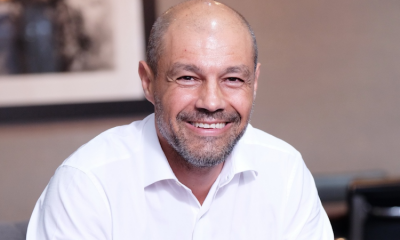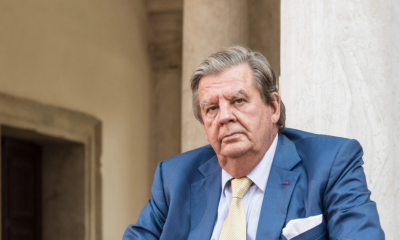Rich lists
Africa’s Billionaires Are Richer Than Ever in 2025; Here’s What Changed

Africa’s billionaires have reached a historic milestone. Despite economic challenges and political uncertainty, the continent’s 22 billionaires now hold a combined wealth of 105 billion US dollars. It is the first time their total net worth has ever crossed the 100 billion mark.
According to the Forbes 2025 African Billionaires List, this figure is up from 82.4 billion dollars in 2024. While many African economies continue to face instability, these business leaders have not only managed to hold their ground, but they have also grown their fortunes dramatically.
Also read: Meet South Africa’s Billionaire Club: Who’s Winning Big in 2025
Aliko Dangote Reclaims His Crown With a Refinery Payoff
For the fourteenth year in a row, Aliko Dangote of Nigeria remains the richest person on the continent. His wealth has grown to 23.9 billion dollars, up from 13.9 billion last year.
That surge is largely thanks to his long-delayed oil refinery outside Lagos, which finally began refining crude in early 2024 and is expected to reach full capacity in 2025. It has transformed Nigeria into an exporter of refined petroleum products and reshaped Dangote’s empire.
He described the project as a “pivotal step” in keeping more value within the continent, helping Africa build wealth on its own terms.
South Africa Dominates in Numbers
Although Nigeria holds the top spot, South Africa is home to more billionaires than any other country in Africa, with seven names on the 2025 list.
At number two is luxury tycoon Johann Rupert, whose fortune rose by thirty-nine percent to reach 14 billion dollars. He is the head of Richemont, the global brand behind Cartier and Montblanc.
Jannie Mouton, another South African, returned to the list this year. The jump came after a major rally in shares of Capitec Bank, one of his largest holdings, which increased by nearly sixty percent.
Who Gained, Who Returned, and Who Fell
Some billionaires made surprise returns in 2025.
Femi Otedola, the Nigerian energy businessman behind Geregu Power, saw his net worth rise to 1.5 billion dollars after his company’s shares jumped more than thirty percent.
Anas Sefrioui, the Moroccan real estate mogul, also rejoined the list after a strong run of home sales and stock growth in Douja Promotion Groupe Addoha.
But not everyone saw gains.
Strive Masiyiwa, Zimbabwe’s telecommunications magnate, lost about a third of his wealth. His estimated fortune fell to 1.2 billion dollars, largely due to Zimbabwe’s currency reset, which replaced the Zimbabwe dollar with the ZiG (a gold-backed currency that sent shockwaves through the market).

Image 1: iStock
What This Says About the African Economy
For many Africans living with rising costs, poor infrastructure, and limited job opportunities, the idea of billionaire wealth can feel distant. But this year’s list offers more than just names and numbers.
It highlights the real engines of African wealth: energy, finance, real estate, luxury retail, and tech. It reflects a continent whose wealthiest players are gaining global relevance, even as local economies remain unpredictable.
At the same time, it raises hard questions about inequality. While 22 people hold over 100 billion dollars combined, the majority of Africans continue to face serious financial hardship. The gap is wide and growing.
Billionaires by Country in 2025
-
South Africa: 7
-
Nigeria: 4
-
Egypt: 4
-
Morocco: 3
-
Algeria: 1
-
Tanzania: 1
-
Zimbabwe: 1
This list excludes billionaires who were born in Africa but now live or operate mainly abroad, such as Mo Ibrahim and Nathan Kirsh. Forbes focuses only on those living or doing business primarily on the continent.
The Takeaway
Africa’s billionaires are not just growing richer; they are gaining influence and visibility in the global economy. With smart reinvestment and sector growth, they are shaping the future of business on the continent.
But their rise also highlights the urgent need for more inclusive wealth creation. The milestone of 105 billion dollars is historic. Whether it becomes a turning point for broader prosperity remains to be seen.
Also read: From Cameras to Cash: SA’s Richest Reality TV Stars of 2025
Follow Joburg ETC on Facebook, Twitter , TikTok and Instagram
For more News in Johannesburg, visit joburgetc.com
Source: Forbes
Featured Image: Shutterstock



























